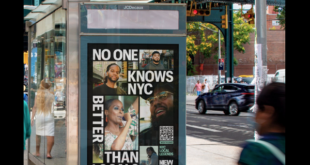[ad_1]
Almost three quarters (73 per cent) of travel professionals are not yet prepared to take advantage of voice technology, despite recent research showing that 20 per cent of all Google searches are made via voice1 and sales of smart speakers, the fastest-growing consumer tech segment, are set to grow by 50 per cent in 2018-192.
The poll by Travel Technology Europe also hinted that, while there is a long way to go before voice integration becomes mainstream, the desire, recognition and budget for embracing voice is present; with 29 per cent of respondents stating that they were ‘planning to invest’ in the technology during 2019.
Travel Technology Europe group event director, David Chapple, said: “The potential of voice within travel is something that industry innovators have been keen to capitalise on over the last few years as the technology has developed, largely thanks to its ability to personalise search, provide information in real time and ultimately boost the whole customer lifecycle experience.
“Voice enables travellers to interact with OTAs, booking engines and comparison sites naturally, instinctively and quickly – enhancing both the relevancy, enjoyment and satisfaction of their overall experience. To stay on top of the competition, travel brands need to embrace the opportunities that voice can bring and ensure they are ready.”
He continued: “While it’s surprising to see such a large percentage of the industry is still a long way off when it comes to their preparedness for voice – it’s encouraging to find that recognition of its importance is growing and that budgets are being put towards it.”
Visitors to Travel Technology Europe, taking place at Olympia London on 20-21 February 2019, can hear how brands such as Skycanner have successfully implemented their booking technology using Amazon’s voice assistant; as well as from Google Assistant’s Nicolas Dussart, who will be discussing conversational UI in the traveller’s journey.
[ad_2]You can read more of the news on source
 Travelsmart
Travelsmart



